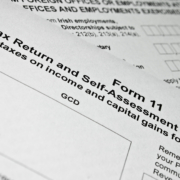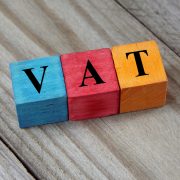Tax Treatment of Unapproved Share Option Schemes

Employee share incentive schemes can be an effective way of offering tax savings to employees in addition to encouraging employee participation and loyalty. One type of share incentive scheme is an unapproved Share Option Scheme. We have set out below some frequently asked questions on the tax treatment of unapproved Share Option Schemes:
What do I receive when I am granted a share option by my employer?
When your employer grants you a share option, you receive the right to acquire shares in the company at a future specified date at a pre-determined price. You must actually exercise the option in order to take beneficial ownership of the shares.
What information will I get from my employer when I am granted a share option?
Your employer will generally issue documentation covering:
- The number of shares that you can acquire,
- The price that you have to pay for the shares (“Option Price”),
- The dates from which, and by which you can exercise your option (“Exercise Period”), and
- The conditions regarding the right to exercise the option, which may include good leaver and/or bad leaver provisions.
What is meant by “date of exercise”?
The “date of exercise” is the date at which the employee takes up their right to acquire shares.
Must I pay to acquire the shares under a share option?
The shares may be at no cost to the employee (nil option) or at a predetermined price that the employer has set. In some cases, the employee will have to pay something for the option itself.
Are there different types of unapproved share option schemes?
There are two types of share options for tax purposes:
(a) a ‘short option’ – which must be exercised within seven years from the date it is granted; and
(b) a ‘long option’ – which can be exercised more than seven years from the date it is granted.
There are tax implications for employees participating in unapproved share option schemes and reporting obligations for both employers and employees:
Tax Implications for Employees
Date of grant
There is no tax or reporting obligations due at the grant of short options. Where a share option is a long option, a charge to income tax may arise on both:
- The grant of the share option (where the option price is less than the market value of the shares) and
- The exercise, assignment or release of the share option.
Credit is given for any income tax charged on the grant of the share option against the income tax due on the exercise, assignment or release of the share option.
Date of exercise
When an employee exercises his/her right to the share options and acquires the shares at the pre-determined price, the difference between the price paid to acquire the shares (the exercise price) and the market value of the shares at the date of exercise of the option is called the share option gain. The share option gain can be reduced by any payment made by the employee for the initial grant of the option.
Where an employee exercises a share option he or she must pay what is referred to as “Relevant Tax on Share Options” (RTSO) in respect of any income tax due on any gain realised on the exercise of the share option. The relevant tax at 40% is calculated on the share option gain as well as universal social charge (USC) at 8% and PRSI at 4% (unless you have advance approval from Revenue to pay at a lower rate). RTSO is payable within 30 days of an option being exercised.
Example
| Stock Option Exercise | |||
| Exercise of Shares | |||
| Market Price @ date of purchase | $100 | ||
| Purchase price | $85 | ||
| $15 | |||
| Number of shares | 10 shares | ||
| Total exercise price | $150 | ||
| FX rate at date of purchase | 1.1014 | ||
| Share Option Gain | €136 | ||
| Tax on exercise | |||
| Gross Gain | €136 | ||
| Income tax @ 4% | €54 | ||
| USC @ 8% | €11 | ||
| PRSI @ 4% | €5 | ||
| Total liability | €71 | ||
| Net Gain | €65 | ||
Sale of Shares
An employee who acquires shares by the exercise of a share option is chargeable to capital gains tax (CGT) on any chargeable gain realised on the subsequent disposal of those shares.
Where due, CGT must be paid to Revenue within the following deadlines:
| Date of Disposal | Payment Due |
| 1 January – 30 November | By 15 December the tax year |
| 1 December – 31 December | By 31 January in the following tax year |
An individual must file a return by 31 October in the year after the date of disposal. A return is required even if no tax is due because of reliefs or losses. An individual must file a Form CG1 if not usually required to submit annual tax returns; Form 12 if a PAYE worker or a Form 11 if considered a chargeable person for tax purposes.
Reporting obligations for Employees
The employee must submit a Form RTSO 1 within 30 days from the date of exercise of the share option. A payment of Relevant Tax on Share Options must also accompany the submission.
Employees liable to pay RTSO must then submit an income tax return, containing details of all share option gains in a tax year, by 31 October following the year in which the gains are realised. The income tax return must be filed for the relevant year in addition to the form RTSO1.
Reporting obligations for Employers
The employer will have to complete and file a Form RSS1 by 31 March following the year of exercise.
Please contact us if you require assistance with the above.








